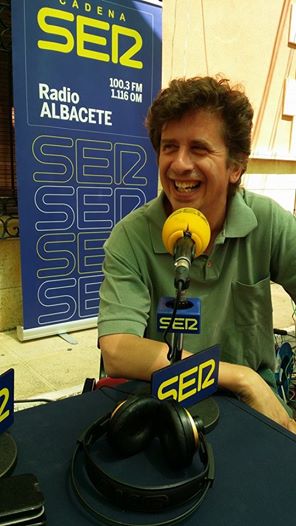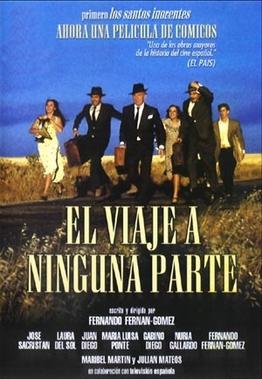Related Research Articles

Workers' Party of Spain–Communist Unity was a communist political party in Spain, founded by Santiago Carrillo and his followers after their expulsion from the Communist Party of Spain (PCE) in October 1985.

Juan Diego Ruiz Moreno, professionally known as Juan Diego, was a Spanish actor who appeared on stage, in television and film productions since 1957. He starred in films such as The Holy Innocents, The 7th Day, Dragon Rapide, París-Tombuctú and You're the One.

Corrientes, Street of Dreams is a 1949 Argentine musical film directed by Román Viñoly Barreto and starring Mariano Mores and Yeya Duciel.

Gabino Diego Solís is a Spanish actor. He was a regular face in 1990s Spanish cinema, featuring in titles such as ¡Ay, Carmela! (1990), The Dumbfounded King (1991), Belle époque (1992), The Worst Years of Our Lives (1994), and A Time for Defiance (1998). In his prime, he was the recipient of several accolades including one Goya Award for Best Supporting Actor and 4 subsequent Goya Award nominations. His big screen career substantially faded in the 2000s.

Voyage to Nowhere is a 1986 Spanish comedy drama film written, starred and directed by Fernando Fernán Gómez. It is based on his own novel with the same title.

José Suárez was a Spanish film actor.

Diego Corrientes Mateos was a Spanish bandit famous for his generosity to the poor.
Antonio Gasalla is an Argentine actor, comedian, and theatre director.

Matilde Muñoz Sampedro was a Spanish film actress whose career stretched from the 1940s through the 1960s.
Partido Socialista de los Trabajadores (PST) was a trotskyist Spanish political party founded in 1979 and dissolved in 1993. The PST presented lists in coalition with the Revolutionary Workers' Party (PORE), but despite being one of the parties of the Spanish radical left with better election results it was always an extra-parliamentary party.

Francisco Pérez de Burgos (1558-1617) was a Spanish jurist, military man, merchant and politician, who had a preponderant role during the colonial period of Argentina, where he worked as a public and government notary of the city of Buenos Aires.
María Luisa González Benés, known artistically as Marisa de Leza, was a Spanish film and television actress. She died in Madrid after a long illness, aged 87.
Diego Corrientes is a 1924 Spanish silent historical film directed by José Buchs. It portrays the life of the eighteenth century highwaymen Diego Corrientes Mateos.
Diego Corrientes may refer to:
Diego Corrientes is a 1959 Spanish historical adventure film directed by Antonio Isasi-Isasmendi and starring José Suarez, Marisa de Leza and Eulália del Pino. It portrays the life of the eighteenth century highwaymen Diego Corrientes Mateos.
Diego Corrientes is a 1937 Spanish historical adventure film directed by Ignacio F. Iquino. It portrays the life of the eighteenth century highwaymen Diego Corrientes Mateos, one of four films to do so.

José Buchs (1896–1973) was a screenwriter and film director.

The Ignorance of Blood is a 2014 Spanish thriller film directed by Manuel Gómez Pereira and written by Nicolás Saad which stars Juan Diego Botto and Paz Vega alongside Alberto San Juan, Cuca Escribano and Francesc Garrido.
Federico Corriente Córdoba was a Spanish Arabist, lexicographer, academic and member of the Royal Spanish Academy.

Pan y Circo is a Mexican Spanish-language talk show TV series that premiered on Amazon Video on August 7, 2020. The show is hosted by actor Diego Luna and was produced by La Corriente del Golfo, a production company run by Luna and fellow Mexican actor Gael García Bernal. In each episode, Luna and six guests sit for a meal prepared by a notable Mexican chef and discuss some sociopolitical issue. The guests include politicians, activists, academics, artists and celebrities. The show's first episode was filmed last, during the COVID-19 pandemic, and shows Luna and his guests all sitting at home, eating while videoconferencing together.
References
- ↑ de España, p. 185